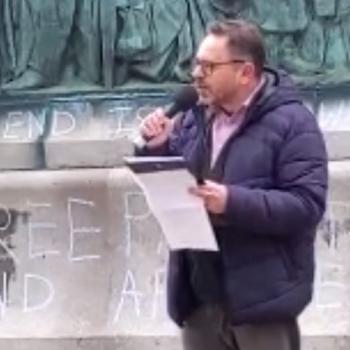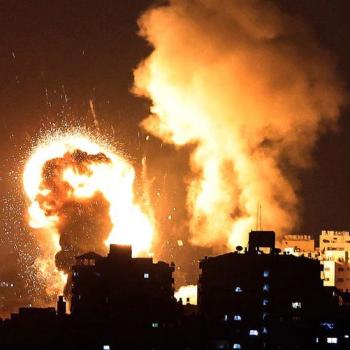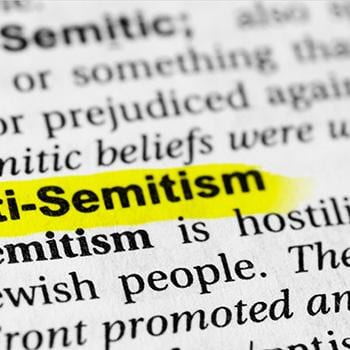Memories are short these days.
There used to be a something called the ‘Occupation’ which left nearly three million Palestinians disenfranchised and disadvantaged.
But that must have been long ago.
There once was a siege of Gaza where two million Palestinians were cut off from the outside world, surviving in a collapsed economy.
But no one talks about that now.
In the past there was a place called East Jerusalem, which people knew had been illegally annexed and where Arab residents were denied the same rights as their Jewish neighbours.
But who remembers such details these days?
Memories are short.
But when did the world start forgetting?
Or perhaps everything that was once strange and abnormal is now normal and unremarkable.
Thanks to Covid-19, we’re all learning to live in a ‘new normal’. And now there is the new normal for Israel/Palestine too.
And we call it ‘normalisation’.
In both cases things are not what they used to be, and may never go back to how they were.
The forgetting has been creeping up on us for a while, but it really took hold this week as Israel signed the Abraham Accords with its new best friends, the United Arab Emirates (UAE) and Bahrain.
Learning to forget
To remember how we learnt to forget, you have to go back to the precise wording of Trump’s January peace plan, or to give it its full name: Vision for Peace, Prosperity, and a Brighter Future for Israel and the Palestinian People.
The document forgets lots of things. For a start, it forgot international law and United Nations’ Security Resolutions. It was as if these things had never happened or had been deleted from our memories. The language of ‘Vision for Peace’, spoke only of today’s “realities” and the requirement to take a “pragmatic” approach.
And “pragmatic” turned out to be another word for forgetting.
Forgotten too were the words “Occupation” and “Settlements”. Instead, Vision for Peace talked of “the portions of the West Bank with large Jewish populations”. The authors of the document appeared not to remember how these Jewish populations got there in the first place or what had happened to the Palestinians since they had arrived.
This wasn’t the end of the forgetfulness.
In explaining the failures of past attempts to bring peace to the land, ‘Vision for Peace’ put the blame on: “Palestinian divisions”, “Palestinian terrorism”, “failures of Palestinian leadership” and “poor Palestinian governance”. Nowhere in the 181 pages of the online PDF could I find a single failing attributed to the Israelis over the course of the previous seven decades. Somebody had forgotten to put that in the new Vision. And if there was nothing to remember, then, when it came to Israel, there was no judgement required, and nothing to forgive.
The scene was set for prosperity and a brighter future (for some). The season of forgetfulness was truly upon us.
Forgetting to remember
In mid-August came the news that the United Arab Emirates (UAE) had reached a deal, brokered by the Americans, to establish full diplomatic relations with Israel. It was as if the UAE had forgotten why they were ever enemies.
They’d certainly forgotten the Arab League position since 2002 that normal relations with Israel must be contingent on a negotiated agreement with the Palestinians based on the pre-1967 borders.
However, UAE did remember some other things: the benefits of Israeli intelligence; the opportunity for hi-tech trade deals; the chance to buy F35 state-of-the-art fighter planes from the United States; and of course the attraction of a stronger regional alliance to counter that of Russia/Iran/Syria.
But sometimes forgetting can be embarrassing. And the UAE was a little embarrassed.
So it tried very hard to remember something which it used to know. And so UAE told the world that it was only moving to normalisation at this time because Israel had agreed not to do a bad thing (annexing parts of the West Bank). Most of the world had already agreed that this was a bad thing (not to mention immoral and illegal) but somehow, not doing a bad thing is now considered a good thing. In fact, such a good thing that it’s enough to build a peace deal around it. I’m sure it didn’t used to be this way, but it’s hard to remember anymore.
Within hours though, Israel’s Prime Minister, Benjamin Netanyahu, had already forgotten what he had apparently agreed, and Al Jazeera reported the memory lapse:
“There is no change to my plan to extend sovereignty, our sovereignty in Judea and Samaria, in full coordination with the United States”
Just in case anyone was still uncertain about Israel’s thinking on annexation, Netanyahu reminded them in an interview with Israel’s daily newspaper Israel Hayom:
“For the first time in a quarter of a century, we are making peace not on the basis of Israeli concessions and withdrawals, as was the case with Egypt and Jordan”.
And then a few weeks later Bahrain became the second Gulf state to recognise Israel and seek normal diplomatic relations. Although this time there was no mention of stopping annexation. That was forgotten.
When Israel, UAE and Bahrain came to Washington D.C for the re-elect Trump photo-op this week, there was no mention of “annexation”, in the full wording of the text, whether stopping, delaying, or pausing. Someone had forgotten to put that clause in.
The forgotten and the forgetful
In all of this forgetting, we should remember what’s been lost.
Israel/Palestine is forgotten as a conflict of international importance. The rights of the Palestinians stop being a cause for global international concern. Instead, Palestinian demands for equal rights and Palestinian resistance to Israeli occupation, become merely an issue of domestic security for Israel. The lack of any peace or justice no longer hinders Israel’s growth through gaining new international alliances and opening up new economic markets.
Closer to home, here in the UK, there’s been no shortage of forgetfulness either when it came to our formal Jewish leadership. As the Abraham Accords were signed, the Board of Deputies’ President, Marie van der Zyl, was full of misguided optimism, happily echoing the title of Trump’s January peace plan, which is where all this year’s forgetting began.
“We have witnessed a historic moment. The tides are changing in the Middle East and a new era of peace and prosperity is here.”
Meanwhile, the UK liberal Zionist group, Yachad, who had spent the summer campaigning against annexation, was keen to claim some credit for all of this wonderful, post non-annexation world of freedom and justice.
“This was a remarkable moment that demonstrates that diplomatic negotiations are always better than one-sided actions and are the only way to achieve stable, long-term security. It is especially welcomed that Israel has pledged to halt plans to unilaterally annex West Bank territory, a dangerous move that would have put the entire region at risk and one which Yachad has been fiercely campaigning against in the past few months.”
Yachad, obviously missed Netanyahu’s clarification, or perhaps they’d just forgotten. There’s a lot of that about.
Only the upstart, rebellious and social media savvy, Na’amod, the political and spiritual cousins of ‘If Not Now’ in the United States, still remembered what it was to have a grip on reality. Na’amod had tweeted this shortly after Bahrain had joined the parties of forgetfulness:
“Just like the UAE, Bahrain is demonstrating contempt for human rights and legitimising Israel’s unending rule over millions of Palestinians. All people in Israel-Palestine deserve freedom, equality and justice. We won’t stop campaigning until that’s won.”
Learning to remember again
As I write this blog, it’s just a few hours before the start of the Jewish New Year, Rosh Hashanah. The festival can also be referred to in Reform Judaism liturgy as Yom Ha’Zikaron, the day of remembrance, since remembering is one of the great themes of the Jewish High Holidays. Remembering who we are as individuals and as a community. Remembering the sins we have committed in the last year. Remembering it is always possible to return to the path of righteousness.
When we blow the Shofar (ram’s horn) in the synagogue service it’s a reminder that the Shofar was blown at Mt. Sinai as God gave his commandments to the Children of Israel, setting for us the mission to build a society founded on justice.
This year has without doubt been a year of forgetting. In Judaism, forgetfulness is almost a sin in itself. Forgetting does not help you to make peace with your neighbour or bring ease to your soul. It’s always better to remember and to repair before trying to move forward. Let’s hope we all learn how to remember again in the year ahead.
Shanah Tova to all of my Jewish readers.
















